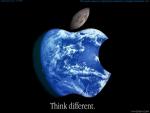摘要:可口可乐公司周三宣布,该公司将在北京启动一家中药研究中心,专门研究中药的配方。这一研究中心是可口可乐公司同中国医学科学院签署的长期合作项目之一。
可口可乐公司副总裁、开发和管理部门的主管Applebaum说:我们希望这一研究中心是为加强饮料配方、提高创新做出的贡献。他说,我们可以利用我们的全球网络以及世界级市场营销经验,配制保健饮料,弘扬中国古老智慧和文化。
该公司称,他们可能在全球推广这类饮料,但目前还没有计划。
可口可乐已经在中国组织生产和销售,市场成长很快。
Coca-Cola this week announced plans to scour China for traditional medicines to develop a more nutritionally beneficial portfolio of drinks.
With the group's core carbonated soft drink brands undergoing sales declines in some markets, Coca-Cola is joining the search by a number of manufacturers for alternative products to entice increasingly health conscious consumers.
To cater for this changing demand, the group announced the official opening of a new project in Asia to step up its focus on developing products with nutritional benefits.
Coca-Cola said on Sunday that it now has a permanent research centre at the China Academy of Chinese Medical Sciences in Beijing.
Coca-Cola's chief scientific officer Rhona Applebaum said the company will aim to identify potential nutritional benefits from traditional Chinese medicines to incorporate into new beverage brands.
"We see this centre as an important step in strengthening our innovation pipeline for beverages that contribute to well-being," she stated.
"As the world's largest beverage company, we can add global reach and world-class marketing skills to help promote Chinese wisdom in preventive holistic health through new and innovative beverages," Applebaum added.
In a move the company claims is an industry first, Coca-Cola's own researchers will work with staff at the medical academy to employ state-of-the-art technologies to devise beverages formulations containing locally sourced herbal ingredients.
Coca-Cola said the site was opened ahead of Pacific Health Forum Personal Health Workshop, which this year focuses on "Responding to the Modern Lifestyle" will look to howChinese medicinecan benefit global consumers.
The event was co-sponsored by the Beverage Institute for Health & Wellness ofThe Coca-Cola Company(BIHW).
BIHW was set up by the Coca-Cola Company in 2004 to encourage development of nutrition and health science linked to beverage production.
The opening comes less that twenty fours hours before the company yesterday announced that it has entered into a memorandum of understanding with coffee group Illy to form a joint venture to tap into the growing global market forready-to-drink coffee.
According to the company's figures, the ready-to-drink coffee market, currently valued at $10bn, is projected to expand on average by 10.1 per cent over the next five years.
Muhtar Kent, Coca-Cola's president and chief operating officer, said that combining its own distribution and marketing experience with Illy's coffee products would allow it to make a strong entry into the segment.
"This partnership demonstrates our commitment to meeting evolving consumer demands while creating additional value for our system, our customers and our shareowners,"he stated.
Though both companies have yet to set out the specifics of the deal, they hope to have reached an agreement over the venture by the end of the year.
Adopting this combined focus for beverage innovation comes at a crucial time for the company and its international bottlers, which have had some difficulty in meeting consumer demands in recent years.
Earlier this year, Coca-Cola Enterprises (CCE), the group's main bottler in North America and Western Europe, said earnings per share were expected to fall between five and 10 per cent in 2007, compared to last year.
It is a prediction that follows Coca-Cola Enterprises (CCE) decision to axe more than 3,000 jobs, and re-iterates the firm's struggle to realign its business with consumer demand.
CCE global revenues rose five per cent for the first fiscal quarter to $4.56bn, thanks to more strong performances from juice, water and sports drinks in North America, and the expansion of Coke Zero into France and the Netherlands.
But volumes declined four per cent in North America, CCE said, as consumers continued to leave full sugar, fizzy soft drinks on the shelves.
CCE added that it also faced"great challenges"in the UK, with moves like renaming the fizzy drinks category 'sparkling beverages', instead of the traditional 'carbonated', not yet paying off.
 xbsff发布于2007-10-21 21:56:24
xbsff发布于2007-10-21 21:56:24
 kira
发布于2007-10-23 08:02:01
kira
发布于2007-10-23 08:02:01
 zhouyong024发布于2007-10-29 15:26:50
zhouyong024发布于2007-10-29 15:26:50
 jb_0012003发布于2007-11-01 19:54:37
jb_0012003发布于2007-11-01 19:54:37
 RobLee发布于2007-11-04 15:10:40
RobLee发布于2007-11-04 15:10:40
 afaf66发布于2007-12-09 21:46:37
afaf66发布于2007-12-09 21:46:37
 yzy_yun
发布于2007-12-14 14:24:29
yzy_yun
发布于2007-12-14 14:24:29
 马拉少纳
发布于2008-01-16 12:43:22
马拉少纳
发布于2008-01-16 12:43:22
 jiangzy0595
发布于2008-01-20 11:52:22
jiangzy0595
发布于2008-01-20 11:52:22

